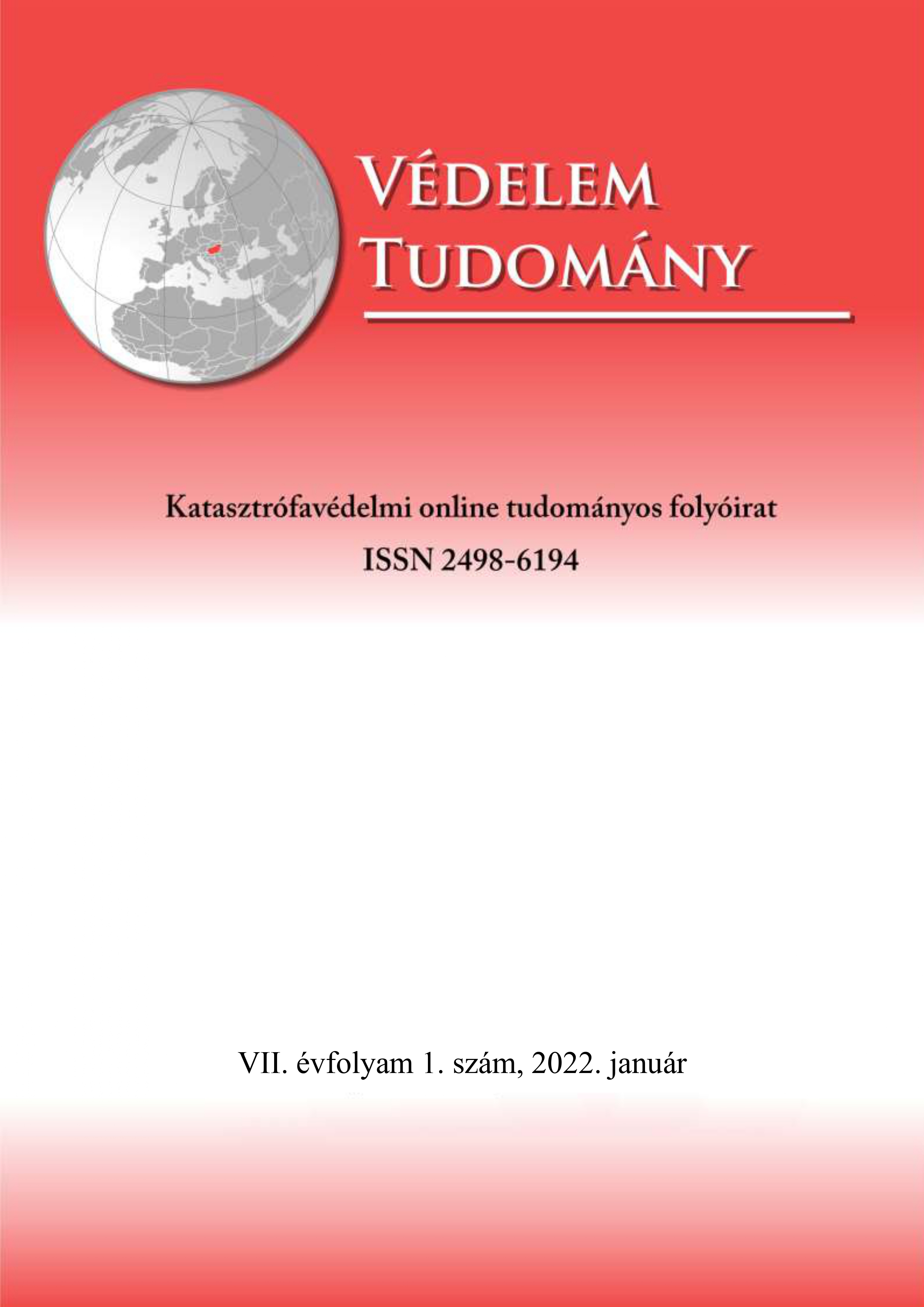Features of management of natural disasters as a result of climate change based on the guidelines of the Sendai Framework
Abstract
It is an indisputable fact that the effects of climate change are leading to more and more intense changes in every area of the ecosystem. The current environmental changes are leading to a series of unexpected natural disasters, which contribute significantly to the increase of the number of minors exploited by human traffickers in the area affected by the disasters. Due to the devastating natural disasters, education and social system will cease to exist, in the absence
of which human traffickers will forcibly remove minors from their homeland, mostly for the purpose of sexual exploitation. Natural disasters resulting from climate change will result in significant changes in key supply sectors, including the agricultural industry, which will have an intense impact on environmental migration. Thanks to this phenomenon, millions of people, including a large number of minors, could leave their homeland, who could easily fall victim
to traffickers. The Sendai Framework Convention, approved in 2015, could offer a solution to these global challenges, which affect millions of minors. The priorities set out in the Framework Convention clearly designate the guidelines and tasks needed to reduce vulnerability and risk about minors or environmental migrants orphaned by natural disasters.
References
BÉRCZI L., BODNÁR L. (2018) : Beavatkozói biztonság vizsgálata a nagy kiterjedésű erdőtüzek kapcsán . Műszaki Katonai Közlöny. XXVIII. évfolyam, 2018. 4. szám, pp. 102-110. https://dev2.uni-nke.hu/document/mkk-uni-nke-hu/PDF_2018_4sz.pdf (Letöltve:04.29.2021.)
Colin, P., Mohtadi, S., Cane, M., Seager, R. (2015): Climate change in the Fertile Crescent and implications of the recent Syrian drought. PNAS. https://www.pnas.org/content/112/11/3241/tab-article-info (Letöltve: 04.29.2021.)
Graff, J., Neidell, M. (2014): Temperature and the allocation of time: Implications for climate change. J. Labor Econ. 32, pp. 1–26. https://www.nber.org/papers/w15717 (Letöltve:04.29.2021.)
IPPC (2018): SPECIAL REPORT: GLOBAL WARMING OF 1.5 ºC. https://www.ipcc.ch/site/assets/uploads/sites/2/2019/05/SR15_Chapter1_Low_Res.pdf (Letöltve: 04.29.2021.)
Missiran, A., Schlenker W. (2017): Asylum applications respond to temperature fluctuations. Science. Vol. 358, Issue 6370, pp. 1610-1614. https://science.sciencemag.org/content/358/6370/1610 (Letöltve:04.29.2021)
UN (2015): Sendai Framework for Disaster Risk Reduction 2015-2030. Sendai, Japan. https://www.undrr.org/publication/sendai-framework-disaster-risk-reduction-2015-2030 (Letöltve:04.29.2021)
UN (2017): Glossary on Sexual Exploitation and Abuse. Thematic Glossary of current terminology related to Sexual Exploitation and Abuse (SEA) in the context of the United Nations. Second Edition. UN, pp. 4-7.
UNDR (2015): Chart of the Sendai Framework for Disaster Risk Reduction 2015-2030. https://www.preventionweb.net/files/44983_sendaiframeworkchart.pdf (Letöltve: 04.29.2021)
UNODC (2000): UNODC (2000): United Nations Convention against Transnational Organized Crime and the Protocols Thereto. Palermo, Italy. (Letöltve: 04.29.2021) http://www.unodc.org/documents/treaties/UNTOC/Publications/TOCConvention/TOCebook-e.pdf




